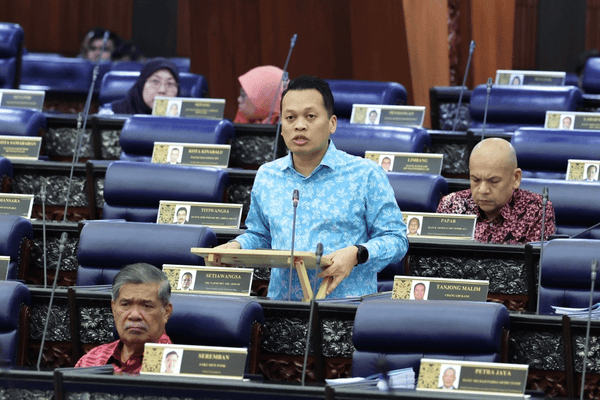By Danial Dzulkifly
KUALA LUMPUR, March 6 — Malaysia will not be the world’s “waste basket,” says Natural Resources and Environmental Sustainability Minister Nik Nazmi Nik Ahmad, reaffirming the Federal government’s firm stance against the illegal import of electronic waste or e-waste.
Speaking in Parliament today, he said Malaysia remains committed to the Basel Convention, which prohibits the import of hazardous waste from developed nations.
“The reality is that this poses a risk to the people. At the national level, we are prioritising this issue. Even in discussions with the Investment, Trade and Industry Ministry, we talk about Malaysia becoming a high-growth, high-value economy.
“If resolving these issues involves activities that cause pollution and endanger health, that is not something we want to manage. The main principle is that we must handle our own waste.
“We do not want to become the world’s waste basket. This applies to both e-waste and plastics,” he said in response to a supplementary question from Ipoh Timur MP Howard Lee Chuan How on whether the Basel Convention allows waste import for mineral recovery.
Nik Nazmi stated that while Malaysia does not entirely prohibit waste recovery, strict conditions apply to ensure public safety, such as scrap metal imports, which are permitted but must meet purity and cleanliness standards to prevent environmental and health risks.
He said the government is also considering several additional measures, including expanding enforcement powers under the Environmental Quality Act to the police, classifying environmental crimes under anti-money laundering laws, and amending port regulations to take action against shipping agents making false declarations.
Other proposals include blacklisting repeat offenders, mandating third-party inspections of waste from exporting countries, and banning imports from nations that have not ratified the Basel Convention, such as the United States.
Nik Nazmi also said enforcement efforts have been intensified in collaboration with the police and Environment Department (JAS).
“We take this matter seriously. Under a nationwide operation, 47 premises were inspected, and 15,764.9 metric tonnes of e-waste, worth an estimated RM55 million, were sent back to their country of origin,” he said, adding that authorities identified 30 of the inspected premises were operating illegally, with some located in non-industrial areas, including palm oil plantations and forest reserves.
He said many of the premises lacked local government licences and employed undocumented foreign workers or individuals misusing their work permits
He said 37 premises had their operations shut down, while authorities issued 59 directives, 27 compounds, and opened 52 investigation papers for court action.
Recent legal amendments have also significantly raised penalties, increasing the maximum fine from RM100,000 to RM10 million and mandating jail terms of up to five years for offenders.
Nik Nazmi also revealed that law enforcement officers had been threatened while carrying out investigations, with syndicates even sending videos of officers’ children at school as intimidation.
“This shows how serious the issue is. Despite these threats, we have strengthened border controls with the help of customs officials.
“The number of intercepted waste containers has surged, especially after China tightened its waste import policies,” he added.




